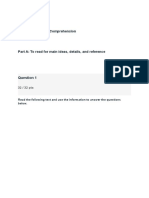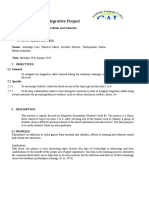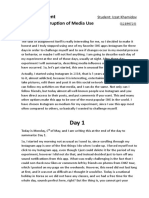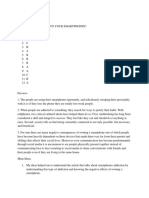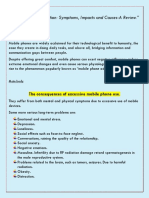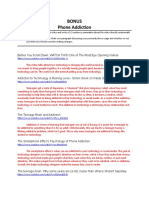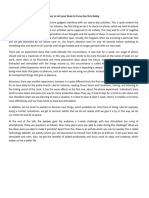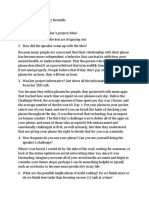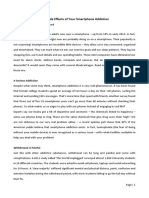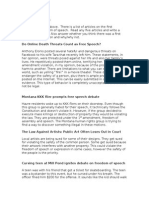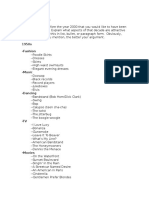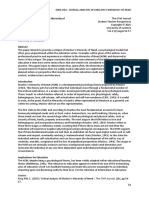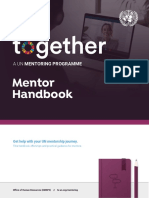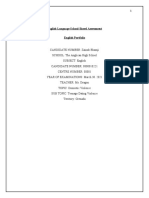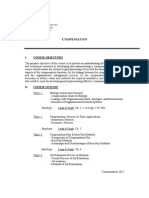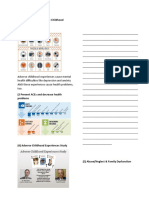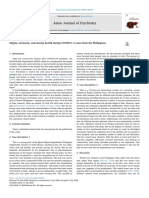0% found this document useful (0 votes)
50 views3 pagesTuesday January 12, 2016: Claire Debenedetto "Try Turning Off Your Mobile Device or Leaving Them Elsewhere." Extra Credit
Claire conducted an experiment over three days to see how leaving her phone in another room would affect her ability to focus on homework. On the first day, she felt anxious within 45 minutes and retrieved her phone. The second day, she lasted 35 minutes before getting anxious and distracted. On the third day, she was able to focus for longer by putting her phone in her purse and knowing she had tests to study for, but eventually lost focus and got her phone again. In her reflection, Claire realized how much time she spends on her phone and that it negatively impacts her ability to focus, leading her to feel anxious and distracted when not using it. She concluded that mobile phones are addictive and that personal connections are better than technological
Uploaded by
ClaireCopyright
© © All Rights Reserved
We take content rights seriously. If you suspect this is your content, claim it here.
Available Formats
Download as DOCX, PDF, TXT or read online on Scribd
0% found this document useful (0 votes)
50 views3 pagesTuesday January 12, 2016: Claire Debenedetto "Try Turning Off Your Mobile Device or Leaving Them Elsewhere." Extra Credit
Claire conducted an experiment over three days to see how leaving her phone in another room would affect her ability to focus on homework. On the first day, she felt anxious within 45 minutes and retrieved her phone. The second day, she lasted 35 minutes before getting anxious and distracted. On the third day, she was able to focus for longer by putting her phone in her purse and knowing she had tests to study for, but eventually lost focus and got her phone again. In her reflection, Claire realized how much time she spends on her phone and that it negatively impacts her ability to focus, leading her to feel anxious and distracted when not using it. She concluded that mobile phones are addictive and that personal connections are better than technological
Uploaded by
ClaireCopyright
© © All Rights Reserved
We take content rights seriously. If you suspect this is your content, claim it here.
Available Formats
Download as DOCX, PDF, TXT or read online on Scribd
/ 3


